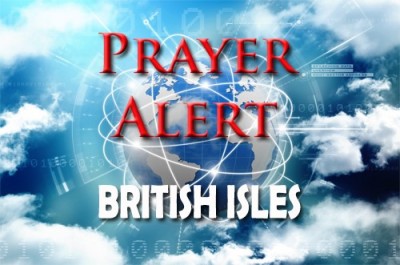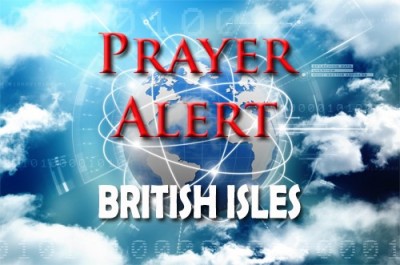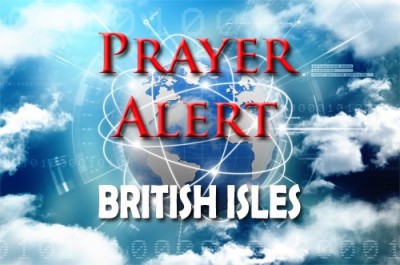2020 National Prayer Assembly
27 Oct 2020Program Schedule with YouTube Links (PLAYLIST)
Theme: Seeking God’s Face for the Deliverance and Destiny of America
Ephesians 2:14-16 “He himself is our peace, who has made the two one and has destroyed the barrier, the dividing wall of hostility…His purpose was to create one new man…and reconcile both of them to god through the cross.”
Tuesday October 13th
As One We Stand: Seeking His Face for Forgiveness of Corporate Sins,
Session 1
Welcome and Introduction with rationale and expectations for the NPA- Dave Kubal, President of Intercessors for America with members of NPA planning task force- Rickie Bradshaw, Kathy Branzell and John Robb
Praise and worship led by Terry and Barbi Franklin, Love Sings and Worship City
1) Repentance for Corporate Sins of America - Pastor Rickie Bradshaw, KSBJ Radio Prayer Director
2) Repentance and Intercession for Spiritual Revival, and Moral Restoration for the Church of America - Dr. Ronnie Floyd, President and CEO of the Southern Baptist Convention Executive Committee
3) Reconciliation and Healing of Divisions in Church/Nation - Scott Turner, former NFL running back and Executive Director of Opportunity Zones and Revitalization Council for the department of Housing and Urban Development working with Secretary Ben Carson
Wednesday October 14th
As One We Stand: “Ask of me and I will make the nations your inheritance, the ends of the earth your possession.”
Session 2
Welcome and overview of the day- Kathy Branzell, President of National Day of Prayer, with Rev. Pierre Bynum, Chaplain/National Prayer Director of Family Research Council facilitating and Terry and Barbi Franklin leading in worship
1) Repentance for and Restoration of Government—Executive, Legislative, and Judicial Branches - Summer Ingram, Prayer Coordinator for Congressional Prayer Caucus Foundation
2) Praying for our Government Leaders - Ralph Drollinger, former NBA player and President of Capitol Ministries
3) Interceding for Our National Elections - Dave Kubal, President of Intercessors for America
4) Listening to the Lord: Impressions or words regarding sins or other issues He is highlighting for more focus - Rev. Pierre Bynum
Session 3
Daniel Lim, CEO International House of Prayer and Kay Horner, Executive Director Awakening America Alliance and Helper Connection facilitating and Terry and Barbi Franklin leading in worship
1) Being watchful about National Security Threats – General Jerry Boykin, former US Special Forces commander and Exec. Vice-President of Family Research Council
2) Repentant prayer about Sexual Immorality and LGBT issues - Peter Sprigg, Senior Fellow for Policy Studies at Family Research Council
3) Interceding for Religious Freedom and our Court System - Philip Jauregui, President of Judicial Action Group
Session 4
Rickie Bradshaw, Prayer Director for KSBJ Christian Radio as moderator and Jody Wood, President of New York Intercessors, facilitating and Terry and Barbi Franklin leading in worship
1) Children Praying for America and Its Children - Lin Story, President of the Children’s Embassy of Washington, DC
2) Interceding for Children, Youth, and Emerging Leaders - Jeff Eckart, Leader of Never the Same ministry to youth
3) Reflecting and Responding to the Lord
Thursday October 15th
As One We Stand: Seeking His Face for Deliverance and a New Future for the Nation
Session 5
Welcome and Opening Comments - Dave Butts, Chairman of National Prayer Committee, with Kay Horner, Executive Director Awakening America Alliance and Helper Connection, facilitating and Terry and Barbi Franklin leading in worship
1) Understanding Economic Concerns - Jerry Tuma, host of Smart Money Radio and financial advisor
2) Repentance and Restoration of Sanctity of Human Life – Allan Parker, President of the Justice Foundation and lead attorney for the Moral Outcry
3) Restorative Justice and Racial Reconciliation Church/Nation - Bishop Harry Jackson, one of the chief conveners of The Reconciled Church: Healing the Racial Divide Movement
4) Interceding for Immigration and Border Issues - Pastor Mark Gonzales, President of the Hispanic Action Network. The Hispanic Action Network exists to educate, equip and engage the faith community from a biblical worldview, to pray and impact culture by turning our faith into action.
Session 6
Dave Butts and Pastor Joe Ahn, New Hope Church, facilitating and Terry and Barbi Franklin leading in worship
1) Prayer and Reaching the Lost - Dick Eastman, International President of Every Home for Christ
2) Interceding for Truth in Media - JP Duffy, Vice President of Communications at Family Research Council
3) Recognizing Occult Invasion and Renouncing of False Gods - Dr. Cindy Jacobs, Leader of Generals International
4) Reflecting and Responding to the Lord - Joe Ahn, Pastor of New Hope Church
Session 7
Welcome and facilitation by John Robb, Chairman International Prayer Council, with Regina Minor, Washington DC prayer leader and Terry and Barbi Franklin leading worship
1) Praying for the Poor and Homeless - Dr. Doug Stringer, President of Somebody Cares America & Somebody Cares International
2) Encouraging new streams of prayer movement: Dr. Jason Hubbard, Executive Coordinator of the International Prayer Council and pastor/professor of Arizona Christian University, with four younger leaders of rising prayer movements
3) Reflecting and Responding to the Lord - John Robb, Chairman of International Prayer Council, with some of the NPA task force (summing up, sharing of conclusions and closing prayers)
Conclusion: Trusting God together for His breakthroughs going forward!
Ephesians 3:20 “Now to him who is able to do immeasurably more than all we ask or imagine, according to his power that is at work within us, to him be the glory in the church and in Christ Jesus throughout all generations.”
Dear Brothers and Sisters in Christ
Amidst many tense situations around the world, we are urgently needing to call our friends across the global church to a dedicated time of breakthrough prayer for Nigeria.
Curfews are being imposed across the country following two weeks of protests and disorder focused against police brutality. It is reported that 12 protestors were killed by soldiers in Lagos on Tuesday.
IPC’s West Africa Director, Austen Ukachi is a Senior Pastor based in Lagos, Nigeria. He has prepared the following briefing and prayer points.
Please let’s act on this in Nigeria’s time of need, and share this with our contacts and fellow networks.
Call to Pray for Nigeria
HOW IT BEGAN
On Friday, 9 October 2020, a peaceful protest by a handful of youths in Lagos State, Nigeria under the hashtag ENDSARS commenced. This demonstration was triggered by a viral video on the social media showing SARS (Special Anti-Robbery Squad) Police officers shooting a young Nigerian in front of Wetland Hotel, Ughelli, Delta State.
SARS was an arm of the Nigerian Police formed in 1992 to tackle rising cases of armed robbery and violent crime in Nigeria. However, over time, SARS lost its way and adopted the ‘Gestapo style’ in their operation, hounding mostly innocent youths into detention and causing the death of some of them. Unfortunately, many Nigerians began to perceive SARS as worse than the problem it was created to solve.
The protest, therefore, gave vent to the anger and discontent that had built up in the youths through the years. The demonstrations did not appear as one that was pre-planned but a response from the younger generation who trooped out in different cities as events developed. It was a demonstration that was technology-driven and spread over the Nation and beyond in a few days.
Prayer walks were happening simultaneously with the protests. Young Christian men and women mobilised themselves to join in the protests but with the intention to pray for Nigeria. Church leaders and major denominations also participated in this aspect of the events.
The Nigerian Government responded by disbanding SARS and hastily setting up a new unit to be known as SWAT (Special Weapons and Tactics) team. The youths were not satisfied with this measure especially as they realised that this would basically mean recycling the same personnel from SARS to SWAT without addressing the fundamental issues in their protest, namely the prosecution of all those who were indicted for crime.
As the protests continued, violence began to creep in. Hoodlums allegedly sponsored by the Government and other interest groups began to attack the peaceful demonstrators. The Nigerian Military also announced a nation-wide exercise code-named Operation Crocodile Smile to coincide with the demonstrations. Many people saw this as a ploy by Government to use force to stop the protests. That is why soldiers have been accused to be responsible for the killing of several protesters at the Lekki Toll Gate in Lagos, on 20TH October 2020. Though this has been denied by the Nigerian Military but video evidence appear to confirm the allegation.
From that moment, the protests turned violent, irate youths went on the loose, burning and destroying government properties; hoodlums also began to loot shops and attack innocent citizens. The chaos has led several state governments in Nigeria to impose 24-hour curfew to curtail the rampage of the youths.
Notwithstanding what has happened and is developing, there is a paradigm shift in Nigeria and we believe that things cannot remain the same again.
NEED TO INTENSIFY PRAYERS
In the light of the above, the Church of God ought at this stage to engage in ceaseless prayers and intercession at family levels, churches and online platforms.
Nigeria is desperately in need of prayers from the global Church. Please join us to pray along the following lines:
- Thank the Lord that we are beginning to see the fulfilment of some of the things He had spoken in the past concerning Nigeria. Declare Isaiah 25:9
- Declare Jeremiah 3:23 and affirm our faith and confidence in the Lord alone.
- Bring repentance over the atrocities and wickedness perpetrated by SARS over the years; the injustices, corruption, maladministration that has subjected the younger generation to the dehumanization and under-utilization of their God given talents and skills.
- Bring repentance over the excessive bloodletting in Nigeria, especially the killing of unarmed youths at the Lekki Toll Gate on Tuesday 20 October 2020.
- Declare that the Lord would have His way in what is happening presently. Isaiah 46:10; Acts 15:18
- May God raise up credible voices and leaders amongst the youths, locally and internationally, who will coordinate and guide them through this generational shift.
- Pray that the eyes of our leaders will be open, that they make decisions that would honour God and that will free the next generation
- Resist the wicked one and declare that neither Satan nor the Nigerian Government would be able to abort what God has begun to do in Nigeria. Isaiah 14:26-27; Job 5:12.
- Pray that this would not be like the “Arab Spring” which turned out to be “Arab Winter!”
- Pray for God to restrain violence and to protect all peoples living in Nigeria who are suffering uncertainty and fear.
- Pray against the spirits responsible for bloodletting in Nigeria. Let us decree that there shall be no further loss of innocent lives in Nigeria through this crisis.
- Pray for the soldiers and Police officers charged with ensuring peace and security. May the Spirit of God overshadow them and ensure they do their jobs with the fear of God.
- Pray that God would use this crisis to lead entire cities and communities to Christ.
- Pray that Christians would be unified behind one thing - the gospel of Jesus Christ; that they would not succumb to the trick of the enemy to factionalise the Body of Christ
- Pray against the attempt to give the protests a tribal colouration and thereby pitching one tribe against another.
- Pray that this ongoing development will lead to revival in Nigeria, a great move of God among the youths, in the family, Church, corporate world, Governance and in all spheres of the society. Remind God of His promise in Numbers 14:21; Isaiah 11:6-9.
Austen Ukachi – West Africa Director
International Prayer Connect
Slaves rescued
22 Oct 2020Recently the Ghana police, working with the department of social welfare and IJM, rescued nine children and arrested five suspects. We are thankful to the resilient and brave team who made this rescue possible. Please pray for further Ghana rescues. Four Filipino children were also rescued thanks to another multi-agency effort led by the Philippines Women and Children Centre. One suspect, believed to be a child’s relative, was arrested. Finally in South Asia ten people, including children, were rescued from bonded labour at a brick kiln.
Girls’ homes give hope
22 Oct 2020Imagine a young girl being turned out into the streets, all alone, because she is too old to stay at the orphanage. Many of these orphans end up as victims of human trafficking and are sold into sex slavery. Many languish and suffer there for years with no hope of a better life. Stella’s Houses are homes for orphan girls who have been aged out of state-run facilities and are prime targets for sex traffickers. While living at a Stella’s House, the girls complete their education, learn life skills, and grow in an environment that changes their mind-set from 'I am just an orphan' to 'I am worthy of being loved'. Instead of becoming a child trafficking statistic, these children are loved and given a chance for a safer life.
Egypt: Christians candidates in election
22 Oct 2020A record number of Christians (108) are standing for election in the Egyptian elections being held between 24 October and 8 November. These Christians are on the four party lists, contesting 284 seats allocated to political parties in the parliament. There have been continuous positive messages from President Sisi to protect Egypt’s Christian community, one of the oldest and largest Christian communities in the region. In previous elections, Christian candidates were barred from running or forced to withdraw due to threats of violence. Attacks and pressure on Copts continue in rural areas, but this positive development is very welcome.
Cardiff university chaplains decided to organise ‘walk and talk’ sessions after other events were cancelled due to the Covid lockdown and a decision not to allow people from areas of the UK with high levels of coronavirus to visit. Rev David Sheen said that this academic year is more stressful for students than usual, particularly new students who would normally be able to socialise widely and meet new friends but are currently restricted in what they can do. Many are missing home, family, and pets, The ‘walk and talk’ events provide some sort of normality, with the opportunity to talk to chaplains, meet others, have some fresh air, and enjoy being with the dogs they are walking. Self-isolating students are invited to join the chaplains’ daily Zoom 'bring your own coffee’ and 'drop-in chat'.
Politics is concerned with serving the common good, weighing and developing solutions, stewarding resources in the public interest; music touches our experiences, tastes and emotions. Boris Johnson’s description of the NHS as ‘powered by love’ following his recovery from coronavirus was notable in its departure from this pattern. His tribute conveyed something out of the ordinary, reflecting an insight derived not from briefings or expert analysis, but through relationship and direct personal experience. Churches have more in common with music than politics. The greatest Christian commandments have to do with love for God and for other people. One expression of love is kindness, which we have seen in abundance during the coronavirus pandemic. Martin Luther King Jr said, ‘Power at its best is love implementing the demands of justice, and justice at its best is power correcting everything that stands against love.’
Brexit talks to resume
22 Oct 2020Talks between UK and EU Brexit negotiators entered an ‘intensified phase’ on 22 October after Brussels said both sides would be required to compromise on trade issues. Michel Barnier offered an olive branch to Lord Frost as the deadline for a deal looms. Number 10 acknowledged that ‘significant gaps’ remain between the two sides, and it was ‘entirely possible that negotiations will not succeed’. Meanwhile, according to the Home Office, EU criminals could be barred from entering the UK when freedom of movement ends next year. However questions remain as to how the criminal history of travellers will be checked if the UK loses access to EU crime databases at the end of the Brexit transition period, as no agreements have yet been reached.







